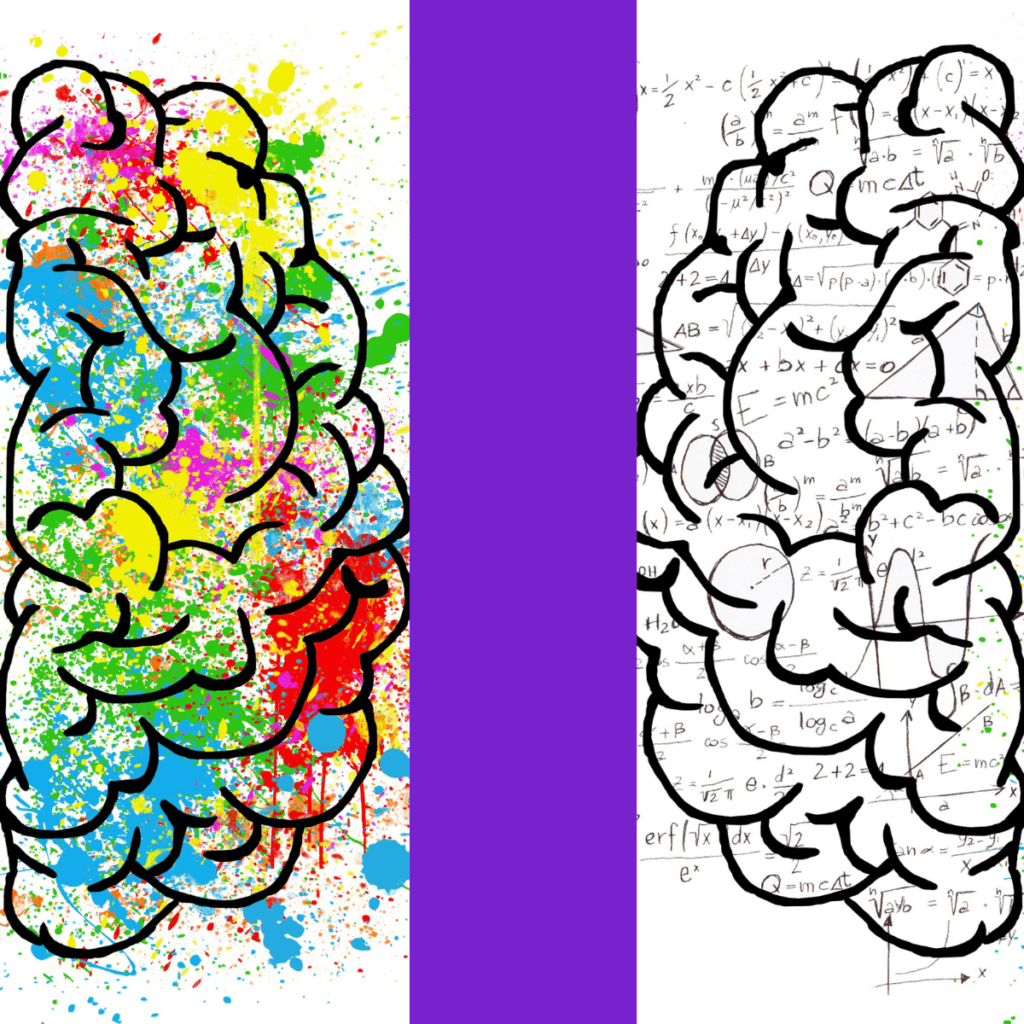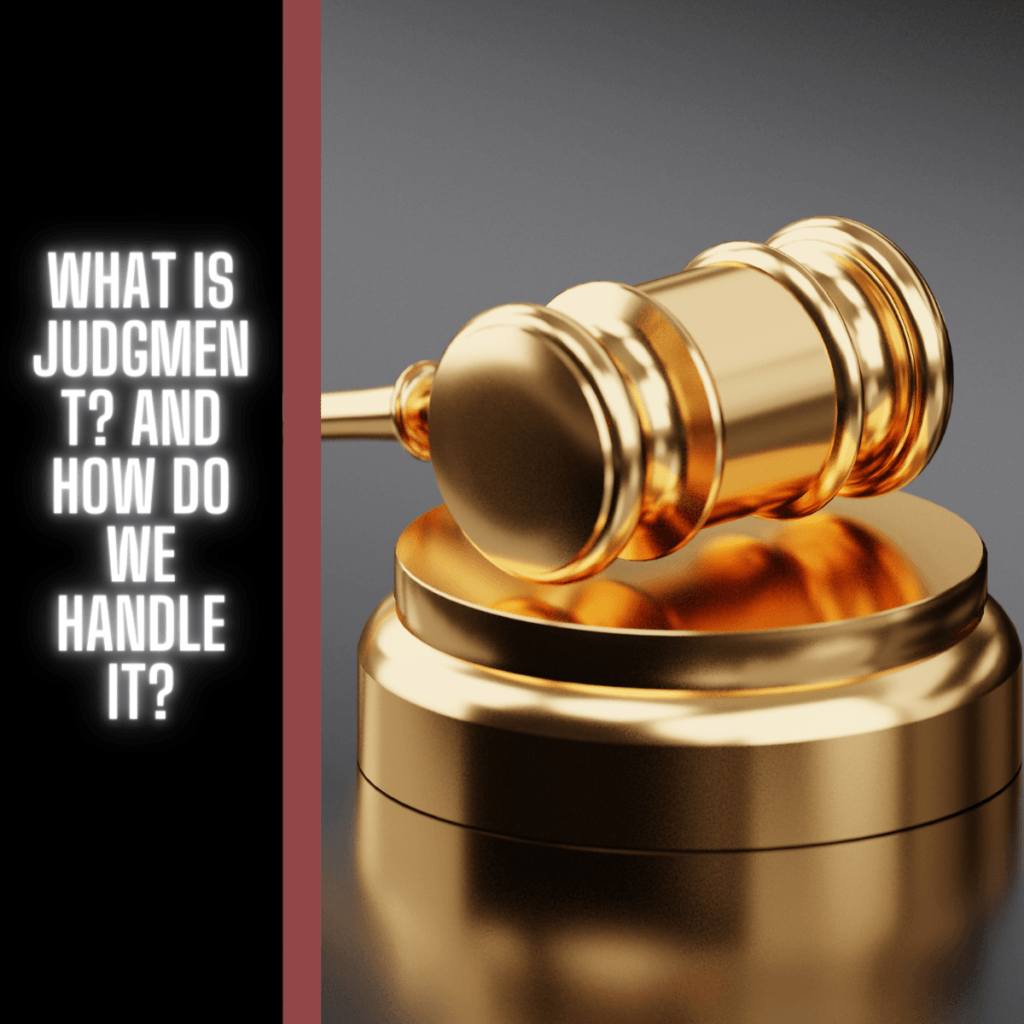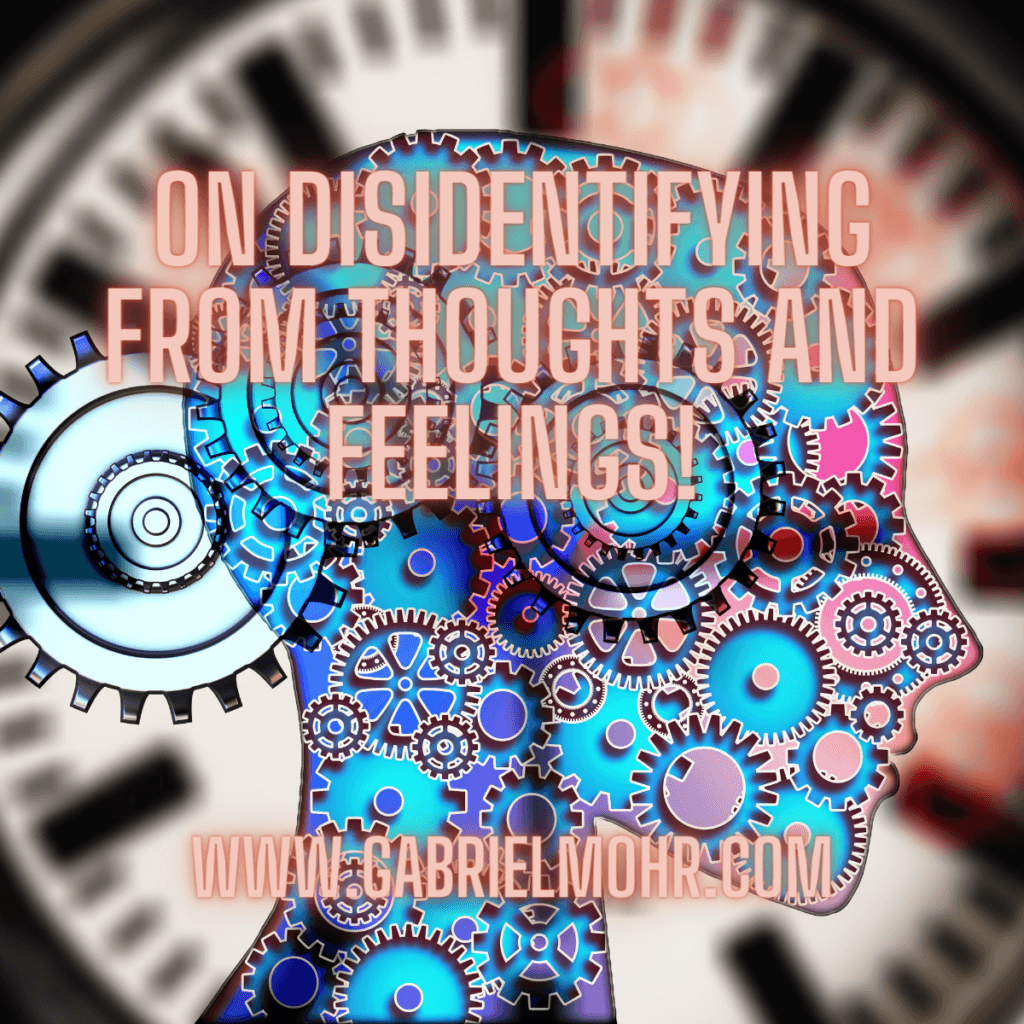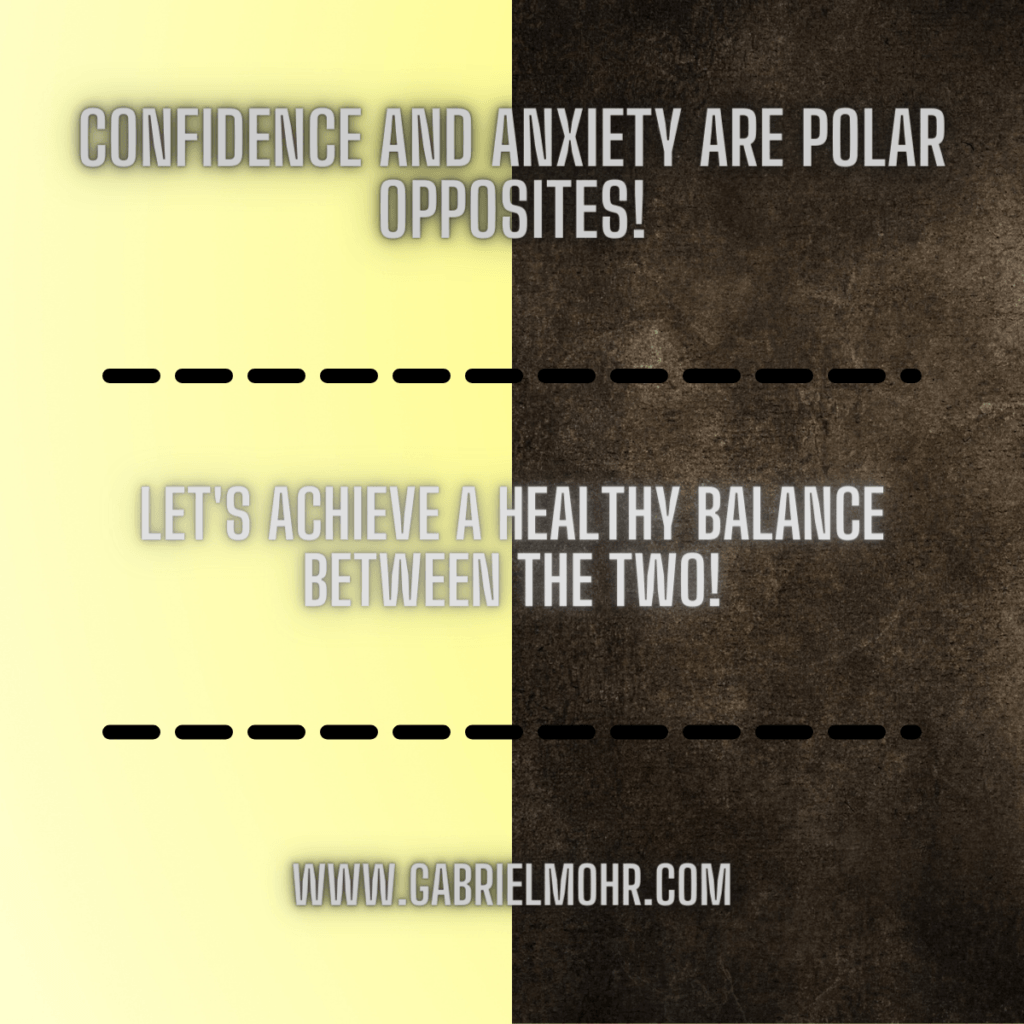
Quick Facts
-Self-integration is the process of integrating every part of your personality into one, whole self!
-Resistance, created by ourselves or picked up from others, often keeps us from being our whole selves. Self-integration is the “cure” for this. It is also the cure for ignoring and/or suppressing yourself.
-Participating in self-integration makes you a whole human being since you’re conscious of your entire personality!
-Self-integration can be painful and scary, but it’s more than worth it!
-Going through self-integration gives you more self-control and more enjoyment of your life the more you do it.
-Asking yourself questions about yourself speeds up the process and makes it easier!
Intro
Self-integration is the process of consciously disidentifying from your subconscious processes, seeing/feeling them completely, and consciously integrating them into your personality. This is a way to go about psychological healing as it helps you bring up and properly process trauma/unwanted thought patterns so that you can “face your fears” and release them into the ether!
What I’m about to tell you may seem like it’s all sunshine and rainbows – and some of it is! But some of it requires looking deep into yourself and shining a flashlight on the parts that want to stay hidden within your psyche. These parts (the psychic processes that exist within our individual subconscious minds) are usually the “nasty feelings” we feel if we’re going about our daily lives and we say something that we’re “not supposed” to say, or if we’re sitting in our home and suddenly thoughts start racing through your head that you don’t want to think about, or if you become angry while you’re at work, or if you’re anxious because you’re about to go out on a date.
The good news is every problem you have is your own and, therefore, solvable! From what I’ve observed, the most effective way to solve these problems is by consciously integrating all of your psychic processes so that you may form a complete perspective of life (perspective is everything, after all), experience an abundance of mental health, and much more!
The Decision to Integrate
Integrating yourself is no easy task unless you choose otherwise. Once you decide to go down the path of integration there will be a fair amount of suffering and a fair amount of pleasure – however, both experiences will be meaningful and will lead to a responsible, healthy lifestyle that will draw other people toward you like a magnet (in a good way)! If you haven’t made the choice then it’s ultimately your decision – you can decide to live your life the same as you always have, or you can choose to see all of your personal subconscious (even unconscious) processes you’ve suppressed and/or see the collective subconscious mind and the meaning therein! I will not persuade you in one direction or another since both kinds of people (the integrated and non-integrated) will find their lives to be meaningful, albeit in very different ways.
I will, however, speak the truth; needing/wishing to realize yourself will ultimately lead to you realizing yourself in one way or another, and integrating your subconscious psychic processes into your conscious personality will help you realize yourself! It is one of many paths but I speak of it because it has personally aided me immensely and because I’ve come to understand that integration will help anyone who is willing to undertake the process, you included! It’s also important to note that if you make this decision you won’t be able to turn back; that is, you normally cannot fit back into your old personality once you’ve gained the wisdom and knowledge that comes with integration until you are very advanced in this area of life!
It’s Important To Have An Open Mind
When integrating yourself it’s extremely important to know that you’ll come across psychic processes that will appear to be one thing and really be something different. Here’s an example:
“An image comes up from the depths of your mind. You are on the street, but nobody else is. It’s dark, misty, and smells faintly of homeless cats. Out of nowhere a man jumps out of the bushes and rushes towards you.”
At this point, most people would block this image out since they have a strong fear of death! They would dismiss the image as “a nightmare” or a “terrible thought” (depending on if they’re awake or asleep). However, in this hypothetical scenario, the person experiencing the subconscious image has decided to have an open mind and see what it really is they need to see, and so the story ends as such:
“As he rushes towards you you remain calm. Frighteningly calm. When he’s just about to tackle you, you move to the side and he falls through the ground into a bottomless void, lost but not forgotten.”
When you ask yourself, “Why do I feel this way” you will (likely) tend to answer yourself through what I like to call “mental videos,” and these “mental videos” are going to feel unpleasant until they are truly realized (in other words, until the video ends without any prompting from yourself). It will feel even more unpleasant to ask yourself this question and then proceed to consciously suppress the image as it comes to your attention, although this is quite common when you’re first starting out.
If you’re reading this post then you (probably) have an open mind! However, it is always important to consciously open your mind by saying something to the extent of “I choose to have an open mind” as often as possible so that the integration process isn’t unnecessarily painful! If you do this enough some of these subconscious processes may approach you without the need to search for them, and this is the ideal state to be in – a state of complete acceptance and trust in your self (your thoughts, mental videos, images, beliefs, feelings, etc)!
Societal Boundaries
Some of our repressed qualities come from accepting or denying parts of life that other people accept or deny. When we’re born we’re told what we can and cannot do, and then we grow up and tell other people what they can and cannot do. This has led to a society that (as a whole) accepts certain things (such as football) and (as a whole) rejects/doesn’t know much about other things (like spirituality).
Unfortunately for us Americans, many of us do not live in a society that values (or is even knowledgeable about) mental health, so following the crowd will almost always lead to compliance and suffering, but most of us have followed the crowd enough to be psychologically damaged and in need of integration.
We have the church, for example. One of the biggest rules of the church is to refrain from sexuality until you are married and to only have sex with your partner. However, if there’s one thing you don’t want to do it’s repressing a desire that you feel. This doesn’t only apply to sexual desire – it can manifest as a desire to see a movie, travel, hang out with a certain group of people, etc etc. The reason for this is that repression always leads to an increase in neuroticism (the personality trait). Invariably. All the time.
However, the church isn’t the only social construction that has the potential to rob us of our mental health – almost all social constructions exist to turn a profit (politics, government, most corporations, etc) and/or are misguided in their ways. Some of them (like the church and the government) are even interested in asserting and maintaining control over our minds, and this is a big part of the “social awakening” that you could be going through right now. I won’t get into this much further (I’ll cover it in a future post) but watch for any organization that imposes boundaries on other people in one form or another, and ask yourself if they have imposed such a boundary onto you, as this may contribute to your need for integration.
We also have these deadly things called social norms, and they (usually) don’t explicitly tell us what we can and cannot do (like the law does) but people who follow these norms live by an assumption that looks something like this: “If you do this a certain way, we’ll accept and respect you. If you decide to do it a different way we’ll have to pretend we don’t know you, we may even treat you with disgust, and we certainly won’t be able to accept you as you are.” Many, many people fall into the trap of following social norms since most of us have the need to feel accepted, but what they don’t realize is that they’re rejecting certain parts of themselves when they conform to society’s standards, which in turn creates neuroticism inside the individual’s psyche that needs to be healed.
In order to move outside of “the circle of society,” we must become aware of our society’s customs, norms, dos and don’ts, and what’s acceptable and what isn’t. It’s also important to be aware of the norms and dos and don’ts of the community (whether that be your church, your school, etc) you grew up in and the community you’re living in now (provided you’ve moved at one point or another). Being aware of these rules will help you understand the people who live(d) by them, and particularly how the people in your community treated you while growing up as a child. Once you know the dos and don’ts of your community, then you can get a pretty good idea of which parts of you you were taught to suppress, and these are the parts that are asking to consciously be integrated into your personality.
It should be noted that time is mostly wasted by mourning the past; that is to say, we can blame other people for the problems we have, but the hurt we feel comes from the expectation that such people were supposed to do better and treat us better than they did. In reality, we are the ones who control ourselves, even if someone has convinced us that we should control ourselves in a certain way. If you didn’t know that before, you know it now, and now you have the choice to ignore this fact or to keep it in mind as we move forward to the next section!
Personal Experiences
There is another kind of neuroticism that can take place, but this is more of a personal nature than what I’ve described above. Let’s say you’re a small child, and you’re about to go on your first airplane flight. You may be excited because you’re going to do a big grownup thing that you’ve only heard about up until this point. Your parents give you a window seat, the captain announces take off, and before you know it you’re soaring 40,000 feet above the ground! You decide to look down to see what it’s like and suddenly you’re stricken with a stifling fear that makes you quickly look away, and this fear (albeit unconsciously) stays with you until adulthood as a somewhat common “fear of flying.”
Obviously, the possibilities are infinite, but I will point out that personal neuroticism is usually much more meaningful to overcome than social neuroticism. It is usually the case that one awakens to the state of their community before awakening to their own personal trauma within. It’s also easier and better to heal personal trauma since by doing this, you (usually) skip the step of being angry at society for causing all of your problems anyway!
Subconscious Repression
Whether suggested by society or simply because of personal preference, repression is done by ourselves to ourselves. This fact can be easily conceptualized, but it can be very difficult to fully realize since most of us are very used to repressing the parts of life we don’t agree with. But this is good news in the sense that we have the ability to find the parts of ourselves that are repressed and integrate them into our conscious lives!
It will become apparent that healing your repression gives more meaning than healing socially encouraged repression, however, both sources of repression must be addressed by you and it can be found to be one or the other by your own judgment, and both can be healed through your own power.
Here is the process:
1. Sit in a quiet environment, away from others. The reason for this is so that you can observe the thoughts/feelings running through your mind, heart, soul, and body.
2. Feel the feelings and think the thoughts that you deem uncomfortable. There is no need to do anything except breathe during this stage, and I recommend that you attempt to see the pictures and/or mental videos that are associated with such thoughts/feelings in your mind.
3. It may go down in intensity on its own, or it may not. Either way, it’s best to consciously accept these repressed/unintegrated parts of you and see anything they have to show you in your mind’s eye. This can simply be done by saying “I choose to accept these parts of me and treat them with love and compassion.”
4. Disidentify from it by saying, “I choose to disidentify from this belief/feeling.” Then, ask yourself, “Why do I think or feel this way?” The answer you receive is an intuitive answer (I.E. it will be from yourself to yourself) that may lead to more questions. Answering these follow-up questions until no more questions are asked is the doorway to realizing the next subconscious process that is asking to be integrated.
5. Repeat as needed!
It’s important to note that you aren’t trying to get rid of these parts of yourself; instead, you’re trying to accept them, knowing that they are a part of you (you can even choose to mature these parts of yourself)! This can either be depressing or liberating, depending on where you are in your development, but if you find this depressing then it is most important to ask yourself, “Why do I feel this way?” And this is where I start the next section.
Asking Questions
Asking yourself, “Why do I feel what I feel?” is the most important step after realizing what you feel. If you simply feel your subconscious pain you will see the images that accompany it, and that may be enough, but if the “problem” still lingers then the next step is to ask questions. If, for example, I’m feeling depressed then I can say, “I wish to feel this depression and accept it for what it is.” However, then I can ask, “Why do I feel depressed?” and come up with an answer; “Because I feel lonely.” Then I ask myself, “Why do I feel lonely?” only to find that I don’t have any real friends in my life. I can go even further and ask, “Why do I lack real friends?” and answer myself with, “Because I’m not a real friend myself.” So then I ask why that is, and I can answer myself by saying that I stay too busy to spend any quality time with genuinely good people.
The more you question your current state the more answers you will receive. Some of these answers will be welcome and some will be painful, but if you wish to integrate yourself then it’s best to find the root of an issue by consciously accepting the thought/feeling and then asking questions regarding it so that you may travel deeper into the root or find another issue altogether (both are possible).
Asking questions about your dreams will help you in this regard as well, and it’s easy – it simply involves asking yourself the significance of the dream that you remember from the previous night. If someone is particularly notable in your dream you may ask, “Why do I remember that person?” or “What was so interesting about that box?” The answers you receive will eventually point to a part of yourself that would like to be recognized, accepted, and integrated, but it’s time to end this quite lengthy post.
Conclusion
The steps and conceptualization are documented here but the experiences you have will make one of the greatest adventures of your life. Paying attention to your inner life is the first step towards healing yourself, and cultivating a loving attitude towards yourself (and life in general) is a very meaningful (and adventurous) path to take if you so choose to! If you enjoyed this post, you’ll probably enjoy the post I’ve written about emotional suppression as well!
Hey – do you feel like you need an abundance of love? Check out the surprise hiding behind this link! Have a wonderful day!



